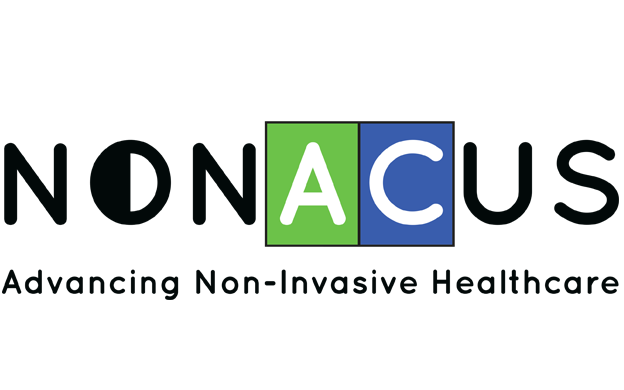Winner profile

Nonacus co-founder and CEO Chris Sale plucks a purple-capped blood collection tube from his desk and holds up it so everyone can see. “We found many of our customers were just using standard purple top EDTA blood tubes. But the problem with these is that the cells break down… so we developed a specialist tube for stabilising the cells and preventing their degradation so that you can then extract the cell-free DNA, which is ultimately the magical material,” he says with a smile.
Sale is describing some of the specialised products that Nonacus creates that allow its customers - university and hospital labs - to perform non-invasive testing for cancers and foetal abnormalities. In the industry, less invasive testing refers to the use of blood (minimally invasive), urine or saliva to screen for the genetic markers of disease. Such tests can replace often painful and invasive biopsies. Nonacus sells diagnostic kits for detecting a range of health issues including cancers, foetal abnormalities, genetic disorders, and viruses.
Sale and his co-founder Lee Silcock - the company’s Chief Scientific Officer - both have significant experience in the genomic testing industry. They set up the Birmingham-based company in 2015 when they noticed gaps in the non-invasive testing market that were not being supported. “Big companies were dipping their toes into the water but were not truly supporting market needs, and especially for new customers in the cellfree DNA testing market” says Sale.
The early team developed a full clinical workflow that laboratories and scientists could adopt to screen pregnant women for abnormalities in the foetus. In addition to the blood preservation tubes Sale described, the company’s products include extraction kits that help clinicians to maximise the amount of cell-free DNA that is collected. “The pre-analytical steps are so crucial,” says Sale “You have to have good input going in.”
Within a year and a half, the founders discovered that many of their orders were coming from cancer labs rather than labs focused on prenatal testing. “Naturally we listened to the customers and refocused,” says Sale. The company began developing different workflows to support the screening of different cancers. The company also developed analytical technology to directly support the sequencing of DNA.
Much of the early work at the company was supported by a small amount of investment. “We’ve been set up on very, very slender investment compared to probably 98% of other companies in this sector. We were founded off of a £150k investment. Because we already had a plan of what R&D we wanted to undertake, we really had a focus on developing products with a clear advantage and getting them to market quickly.”
The co-founders and their small team have worked hard to scale the company. There were certainly challenges along the way, recalls Sale. “Back in the day, I was doing payroll and marketing and procurement and accounting and sales and everything. Back then the scariest thing was, would I remember to pay everyone?”
Since focussing their efforts on workflows for cancer, Sale says they have committed to investing around £20m of profits back into the company to support research and development. The company now employs over 50 people and reported turnover of £53.9m in its annual accounts for the year ending December 2021 with an operating profit of £33.9m.
Nonacus is now focused on international expansion: “We’ll be expanding into Germany, Nordics, Benelux and certain key European countries where there’s a huge diagnostic need and progressive healthcare systems. The company has just hired a Global Commercial Director to help lead the international expansion along with a Channel Manager to focus on direct sales into European markets and expanding the distribution network. Beyond Europe, the company is targeting Commonwealth countries and the US, with expansion into the country pencilled in for 2024.
Sale says that hiring the right team can be tough but that the company’s mission to provide noninvasive and improved cancer testing methods helps: “What we’re trying to try to achieve as a company is phenomenal and that clearly does touch a lot of our staff in terms of their interest to work for us.”